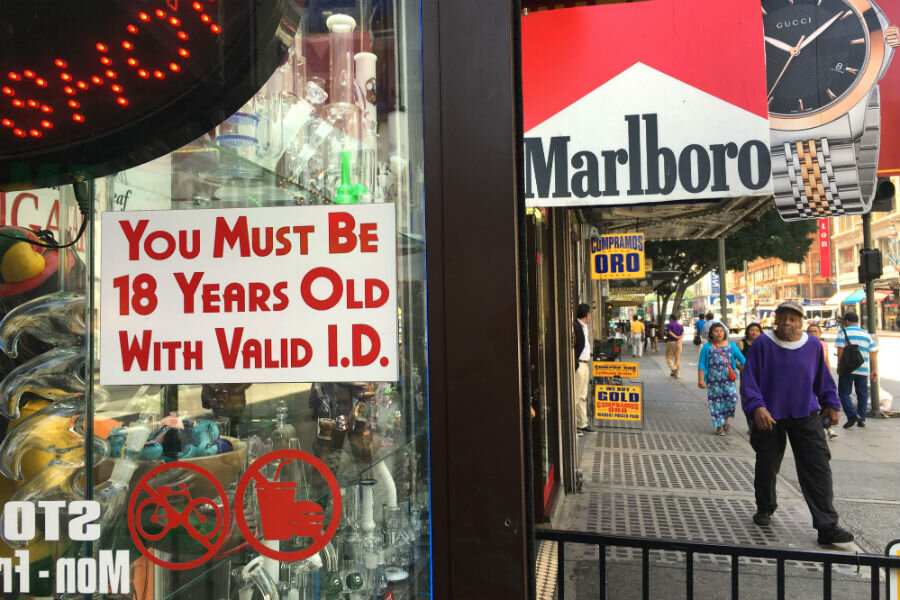Will Pennsylvania's cigarette tax really get people to quit smoking?
Loading...
To fix a budget deficit and prevent a credit rating downgrade, Pennsylvania today will raise its cigarette tax by $1, from $1.60 to $2.60 per pack.
State lawmakers agreed last month to bump the tax to help generate upwards of $750 million in net new state taxes and revenues, nearly $495 million of which will come from the 62.5 percent increase in the cigarette tax.
Pennsylvania’s new smoking surcharge will be the country’s 10th-steepest, moving the state up the ranks from #23, according to rankings from the Campaign for Tobacco-Free Kids, a Washington-based anti-smoking organization. Nine states, including New York, Rhode Island, Massachusetts, and Hawaii, have even steeper cigarette taxes. At least a dozen other states are considering similar levees to pay for roads, budget shortfalls, public health, and other programs.
Supporters argue that the taxing cigarettes not only improves public health, but also prevents a rise in states’ personal income and sales taxes. But opponents criticize them – alongside sugar and alcohol taxes – for being emblematic of government overreach and for disproportionately affecting lower-income households.
Nationwide, 29 percent of poor adults smoke, compared to 18 percent of non-poor adults, according to the US Centers for Disease Control and Prevention. And lower-income people spend more of their money on cigarettes.
"I don't believe we should tax 20 percent of the population because 80 percent of the population believes we should,” Pennsylvania’s Republican Rep. Russ Diamond told PennLive last month. “I don't believe that's sound policy. I don't believe that's moral. I don't believe that's fair."
Despite the popular argument that such taxes are regressive, extensive research shows that they benefit the young and the poor more than anyone else.
“In general, oppositional arguments that higher taxes will have harmful economic effects are false or overstated,” concluded Frank J. Chaloupka, an economist from the University of Illinois in Chicago, with colleagues from Switzerland and Canada, in a 2012 paper in Tobacco Control, a peer-reviewed journal. “Well over 100 studies, including a growing number from low-income and middle-income countries, clearly demonstrate that tobacco excise taxes are a powerful tool for reducing tobacco use while at the same time providing a reliable source of government revenues,” reported the authors.
In fact, cigarette taxes have been shown to reduce smoking rates among the young and poor, to save lives, and to save the US government tens of billions of dollars in healthcare costs.
One peer-reviewed study from 2001 estimated that minorities and lower-income people reduce their smoking four times more than people with incomes above the median when cigarette prices rise, likely because they’re more sensitive to the increases.
“This means that the health benefits of the tax increase would be progressive,” concludes the Center on Budget and Policy Priorities, a research organization in Washington. The center cites other research by Prof. Chaloupka that shows people below the poverty line paid a 12 percent share of a 2009 federal tobacco tax increase, but were expected as of 2012 to receive 46.3 percent of the health benefits.
Smoking costs Pennsylvania more than $6.3 billion annually in healthcare costs, according to the Campaign for Tobacco-Free Kids. An estimated 12.9 percent of the state's high school students smoke, which amounts to 9,200 kids taking up the habit every year.
Pennsylvania has also became the sixth state to tax electronic cigarettes, and it now taxes tobacco products such as smokeless, pipe and roll-your-own tobacco.
The structure of the state's e-cigarette tax has been criticized by organizations such as the Tax Foundation for placing undue burden on lower-income residents, but the Washington-based think tank also says that the state should focus on long-term fixes to its budget problems, instead of implementing taxes which will bring in less and less revenue over time.
“Excise taxes on ‘sins,’ such as cigarettes and alcohol, are narrow revenue sources that decline over time and they should not be relied upon to pay for essential government services,” write Tax Foundation economists.
Most economists agree that "sin" taxes are not good budget solutions over the long term because if tax revenues from tobacco, alcohol, or sugar decline over time, this means – after accounting for the possibility that people are buying cigarettes in a neighboring state – that people are consuming less and so the policy is working.








